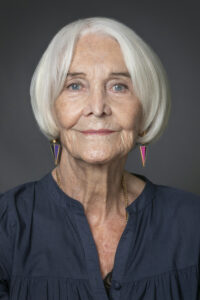
The iconic actor and writer Sheila Hancock reveals stress induces rheumatoid arthritis flares
 Sheila Hancock’s successes extend way beyond her phenomenal award-winning acting career. A celebrated author, she is interested in world events, tragedies, politics, and helps where she can, working tirelessly for charities and in schools.
Sheila Hancock’s successes extend way beyond her phenomenal award-winning acting career. A celebrated author, she is interested in world events, tragedies, politics, and helps where she can, working tirelessly for charities and in schools.
Personal sadness comes to us all and Sheila has had her fair share, so she was well-equipped to take on a rheumatoid arthritis diagnosis in her eighties, seeing it as another challenge to be faced.
“My first encounter with rheumatoid arthritis was excruciating pain in my hand four years ago,” she remembers. “At the time I was dealing with a build-up of extremely difficult events including my daughter’s diagnosis with stage 3 cancer.
“The pain was so bad I thought I must have broken a bone. I used a splint to hold the hand in place and painkillers to take the edge off, but when the other hand flared up too, I knew something else was going on.”
Sheila was not to be deterred from her busy life. However, learning lines for a new play brought matters to a head.
“After sitting still, completely immersed in a script for one hour, I stood up and felt searing pain in multiple joints. My GP gave me steroid injections allowing me to continue working – there was no understudy so I simply had to keep going – and referred me to a specialist. Tests revealed I had rheumatoid arthritis, and I was told I needed to start trying different drugs.
“At that moment, there was no room for me to be affected by side effects that are part and parcel of establishing a treatment regime. I had to be on stage! And there was no understudy. Steroid injections were my only option for the duration of the play.”
As soon as the show was over, Sheila started on methotrexate and was tried on a few drugs before success with a biologic. Today, although not pain-free, Sheila is back on track. And along the way she’s learned how to manage her rheumatoid arthritis.
Diet
“Many years ago when I had cancer, I was put on a strict vegan diet by a specialist,” she outlines. “Along with radiotherapy, I’m sure the diet had a hugely positive impact on my recovery. And now I have rheumatoid arthritis, I find that healthy eating definitely improves my levels of pain and stiffness.”
Research has found, however, that vegan diets are less good for our bones. Great care must be taken to replace meat and dairy foods with a wide variety of grains, beans and nuts – almost impossible if the majority of meals are taken in canteens on-set.
“After a recent fracture we discovered I have osteoporosis and my doctor suggested I start to eat fish and dairy products again to ensure I get enough calcium.”
Stress
Sheila is a very busy person for whom stress is part of life.
“I get stressed when I feel anxious, if I have to make big decisions or if there is any conflict,” she explains. “Like many people with inflammatory arthritis, I find that stress can bring on a flare.
“Strategies I have for dealing with stress include exercise, taking hot and cold showers, and enjoying the silence that is an integral component of the Quaker way of life. But I have to accept that stress causes pain, I don’t really deal with stress very well and this does impact on my symptoms.”
Exercise
Fatigue is one of the most common rheumatoid arthritis symptoms.
“The desire to lie down when I have fatigue can be overwhelming, but it’s the last thing to do in my opinion,” she says. “Sometimes taking a break is essential, but overall I believe in keeping moving. If, for some reason, I don’t do my 10,000 steps a day, I suffer a great deal. Weight-lifting in the gym helps keep me strong in body and mind.”

Old Rage by Sheila Hancock (author) is published by Bloomsbury Publishing PLC and is available for around £16.99 (hardback) from all major bookshops.
Support
Whilst Sheila leads a non-stop lifestyle, she recognises the need to ask for help.
“There are two wonderful arthritis charities to join, the National Rheumatoid Arthritis Society and Versus Arthritis,” she suggests. “Helplines are staffed by knowledgeable and kind people aware of the latest developments. The NRAS has an online forum where you can read and post messages to people having similar experiences to your own.
“I believe in learning everything you can about your illness. That way you can ask the right questions when you go to the GP. Amazing new drugs have transformed the treatment of inflammatory arthritis. The sooner you start treatment, the better the outcome.”
Would Sheila change her approach, perhaps seeking a less pressurised lifestyle?“To think that life should be calm and easy means I would disengage with the world around me,” she says. “If you want to be relaxed, do nothing. That is foreign to me.”
Further information
- National Rheumatoid Arthritis Society, www.nras.org.uk or tel 0800 298 7650.
- Versus Arthritis, www.versusarthritis.org or tel 0800 520 0520.
Image credit: Nick Gregan
Interview first published in January 2023
